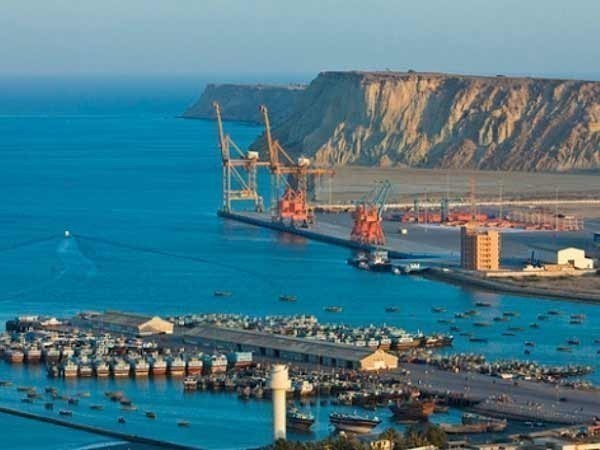Cambridge [USA]: A Chinese-born American professor has raised apprehensions that China may be at risk of falling into a trap with its Belt and Road Initiative, as its heavy investments in countries like Pakistan are unsafe.
“Many of China’s BRI partner countries are risky – including Pakistan, a major recipient of investments under the scheme. In addition to its high political, economic, and default risks, the country also scores poorly on education indicators,” said Yasheng Huang, a professor in international management at the MIT Sloan School of Management in his recent article.
He said, “According to one report, Pakistan ranked 180th among 221 countries in literacy. This is a potential red flag for Chinese investments in Pakistan because research suggests that investments in physical infrastructure promote growth only in countries with high levels of human capital. China itself benefited from its infrastructural investments because it had also invested heavily in education.”
In the recent article which appeared on ‘Project Syndicate’, the professor said: “Cambridge critics often claim that China is using its massive ‘Belt and Road Initiative’ as a form of coercive ‘debt-trap diplomacy’ to exert control over the countries that join its transnational infrastructure investment scheme. This risk, as Deborah Brautigam of John Hopkins University recently noted, is often exaggerated by the media. In fact, the BRI may hold a different kind of risk – for China itself.”
At the recent BRI summit in Beijing, Chinese President Xi Jinping seemed to acknowledge the “debt-trap” criticism. In his address, Xi said that “building high-quality, sustainable, risk-resistant, reasonably priced, and inclusive infrastructure will help countries to utilize fully their resource endowments.”
This is an encouraging signal, as it shows that China has become more aware of the debt implications of BRI. A study by the Center for Global Development concluded that eight of the 63 countries participating in the BRI are at risk of “debt distress.”
But as John Maynard Keynes memorably put it, “If you owe your bank a hundred pounds, you have a problem. But if you owe your bank a million pounds, it has.” In the context of the BRI, China may turn out to be the banker who is owed a million pounds.
In particular, China may fall victim to the “obsolescing bargain model,” which states that a foreign investor loses bargaining power as it invests more in a host country. Infrastructure projects like those under the BRI are a classic example, because they are bulky, bolted to the ground, and have zero economic value if left incomplete.
Yasheng Huang wrote “Unsurprisingly, some BRI partner countries are now demanding to renegotiate terms and typically after the projects have started. China may be forced to offer ever more favorable concessions in order to keep the projects on track”.
In mid-April, for example, Malaysia announced that a major BRI rail project, put on hold by the government after last year’s election, would now go ahead “after renegotiation.” According to media reports, the costs of construction were reduced by as much as one-third. Other BRI countries will probably also ask for debt forgiveness and write-offs, the costs of which will ultimately be borne by Chinese savers.
The BRI may well have additional hidden costs for China down the road. For starters, it is extraordinarily difficult to make money on infrastructure projects. There is a widespread belief that infrastructure investment powers economic growth, but the evidence for this is weak.
“In fact, China itself built much of its current infrastructure after its growth had taken off. In the 1980s and 1990s, for example, China grew much faster than India despite having a shorter railway network. According to the World Bank, in 1996 China had 56,678 kilometers (35,218 miles) of rail lines, and India had 62,915 kilometers.
Chinese growth was not jump-started by infrastructure, but by reforms and human capital investments. If growth fails to materialize in BRI countries, Chinese companies may end up bearing the costs”, said the article.
[source_without_link]ANI[/source_without_link]

